Continuing from the previous “Inventory of the Performance of HOME-ESS in Third-Party Testing (1),” today, let’s take a look at the evaluation report of the HOME-ESS product from a research group at the Berlin University of Applied Sciences in Germany.
The evaluation report is divided into testing for inverters + batteries in two power ranges: 5kW and 10kW. It assesses mainstream HOME-ESS products in the German market, with participation from well-known brands such as Sonnen, BYD, Fronius, Goodwe, KOSTAL, RCT, KACO, and others. The evaluation covers key indicators such as efficiency, available capacity, standby power, and more.
Among the 5kW power range HOME-ESS products, the combination of the hybrid inverter Fronius Primo GEN24 6.0 and BYD Battery-Box Premium HVS 7.7 scored first. In the 10kW power range HOME-ESS products, RCT DC 10.0 secured the top position with a System Performance Index (SPI) score of 95.1%.
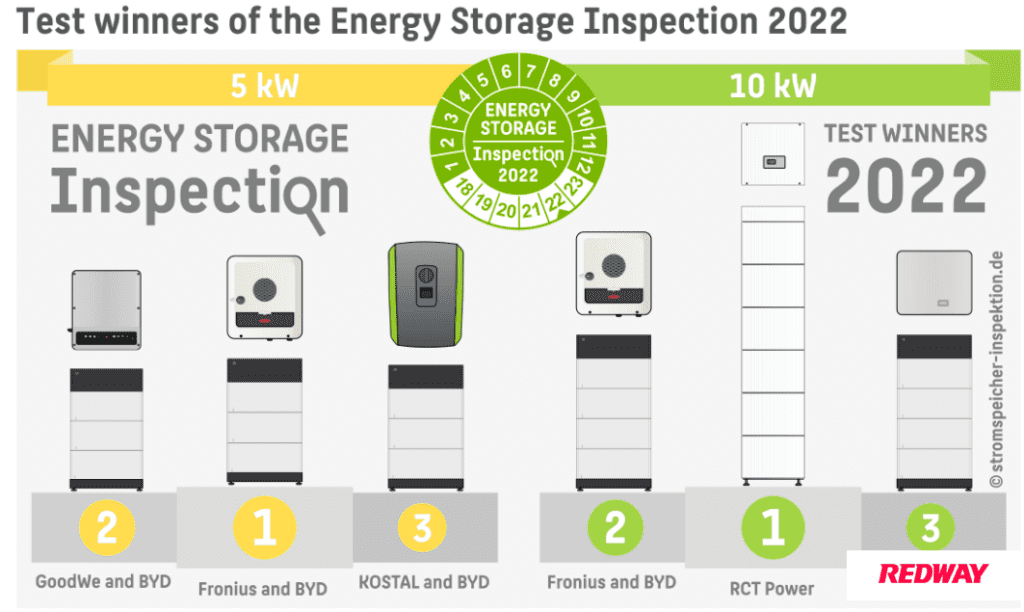
The top three performers in the 5 kW power range and 10 kW power range.
According to reports, BYD has expanded its lithium battery production capacity to 250GWh, with the production line for Battery-Box doubling in size. It is believed that in 2023, with its robust production capacity, product strength, and the collaborative strategy of “Be Partner,” BYD HOME-ESS will continue to lead the market.
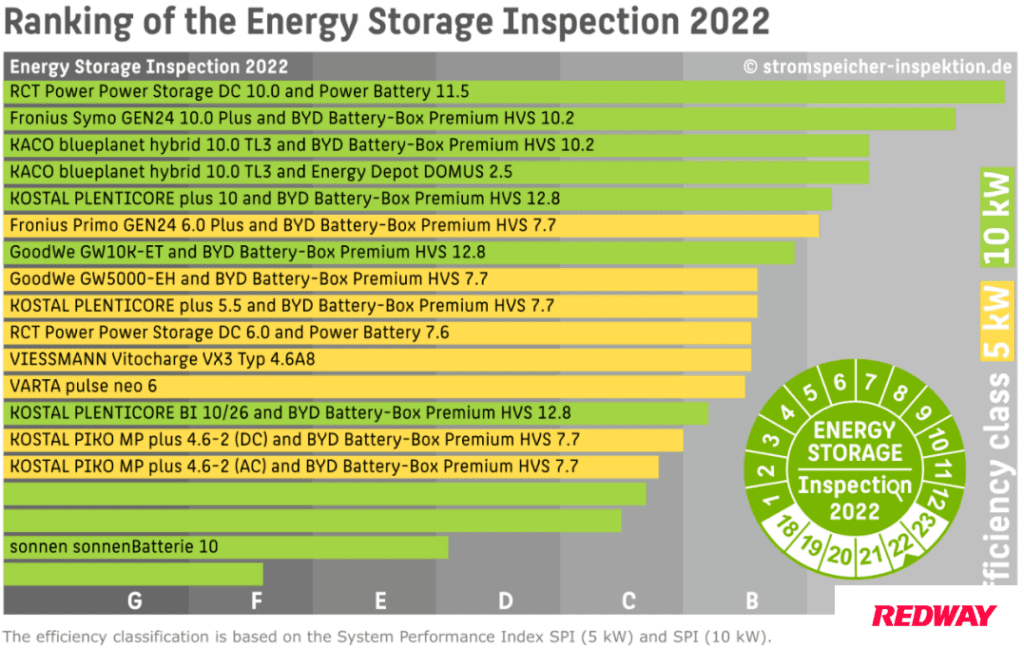
SPI Ranking of the Evaluated Product
Analysis of the HOME-ESS Market in Germany
From 2019 to 2021, the installed capacity of HOME-ESS batteries in Germany experienced an annual growth of nearly 40,000 units. By the end of 2021, the total installed capacity reached 129,000 units for the year.
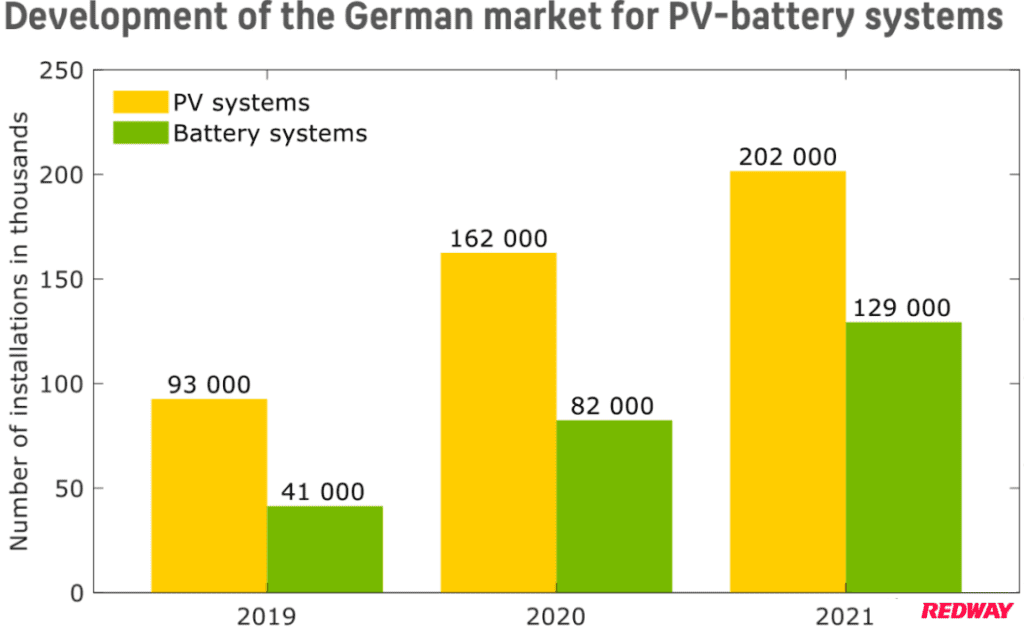
The PV power is predominantly in the range of 9 kW to 10 kW, and the available battery capacities are concentrated in the ranges of 5-6 kWh, 7-8 kWh, and 10-11 kWh.
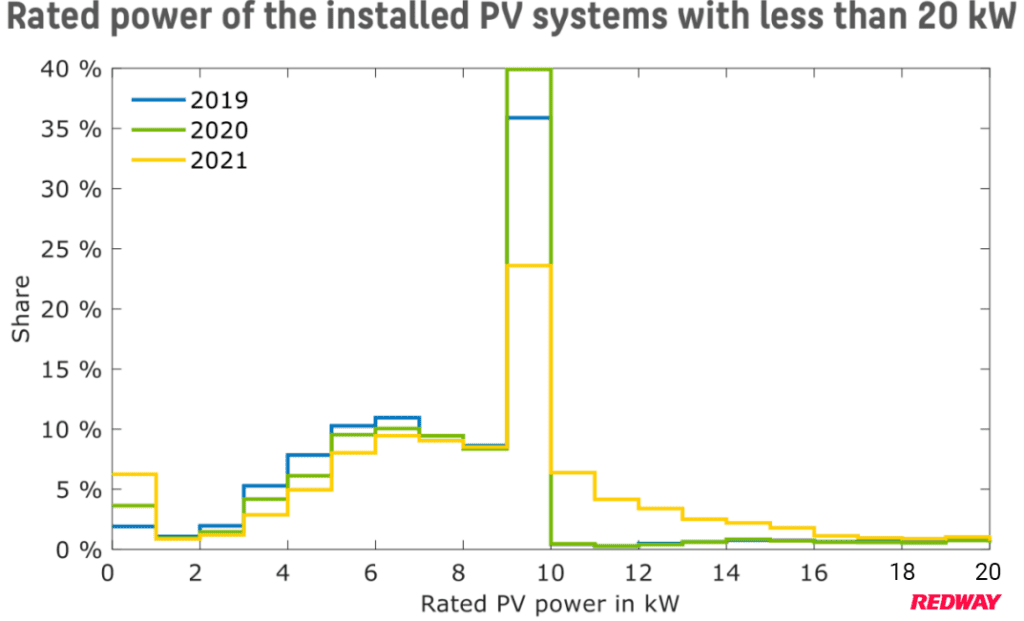
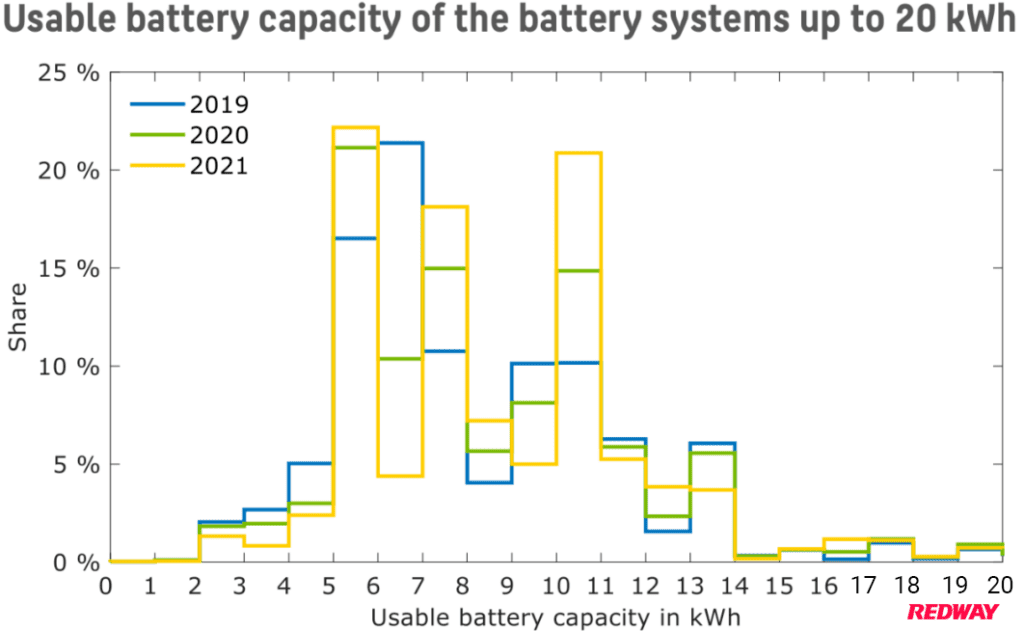
Efficiency and Battery Capacity Testing
The HOME-ESS product is divided into two types: AC-coupled and DC-coupled. The AC-coupled inverter functions solely as a battery inverter, while the DC-coupled inverter is a hybrid type that can connect both the battery and PV simultaneously.
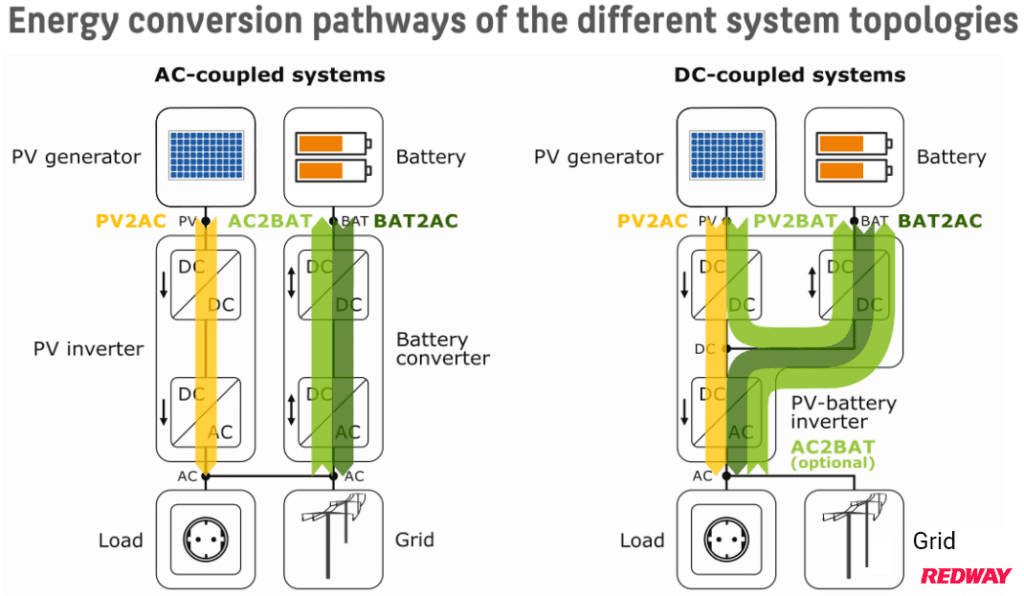
The HOME-ESS products participating in the testing are labeled with alphanumeric codes such as A1, B1, C1, and so on.
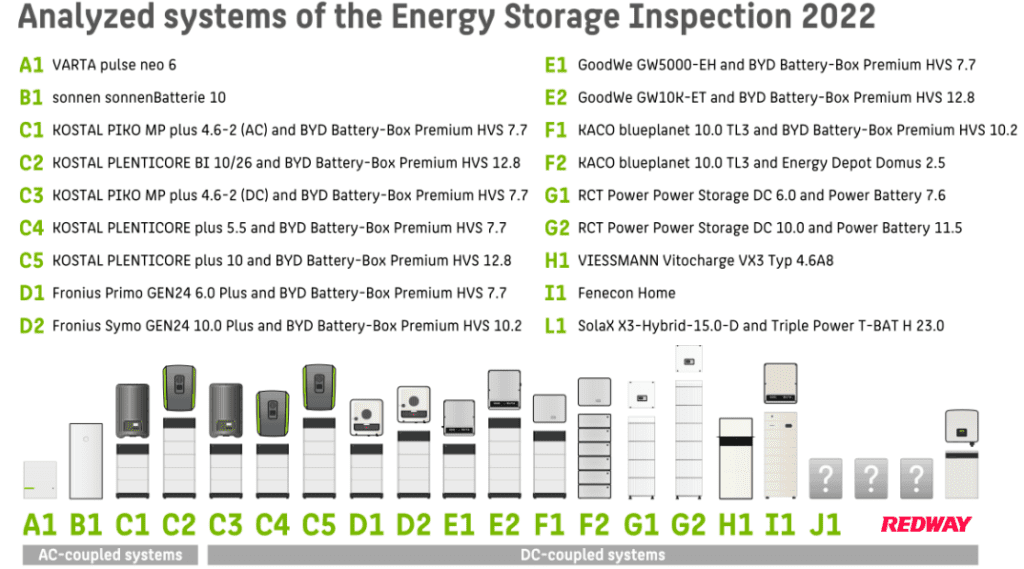
The efficiency testing covers both AC-coupled and DC-coupled types, including PV to AC, PV to Battery, AC to Battery, and Battery to AC.
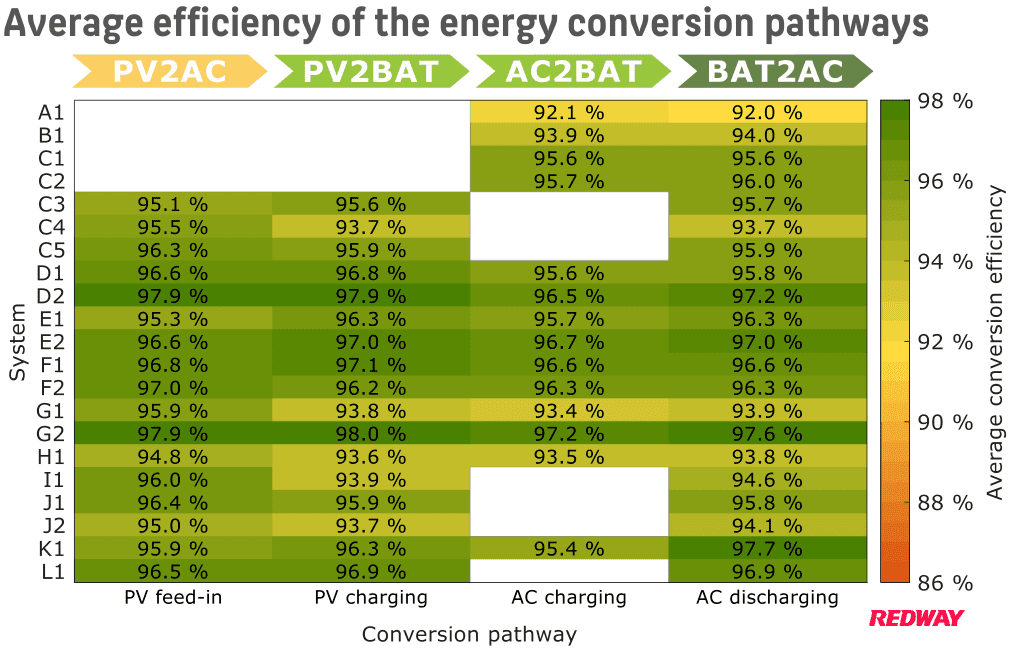
In the capacity testing, the actual measured available capacities compared to the values specified in the product specifications show a discrepancy. The most significant discrepancy is an overestimation of capacity by nearly 20%. However, for more than half of the tested capacities, the measured values exceed those stated in the specifications. It’s worth noting that the laboratory’s testing methods may differ from the manufacturers’ custom testing methods, such as the charge and discharge rates during capacity testing.
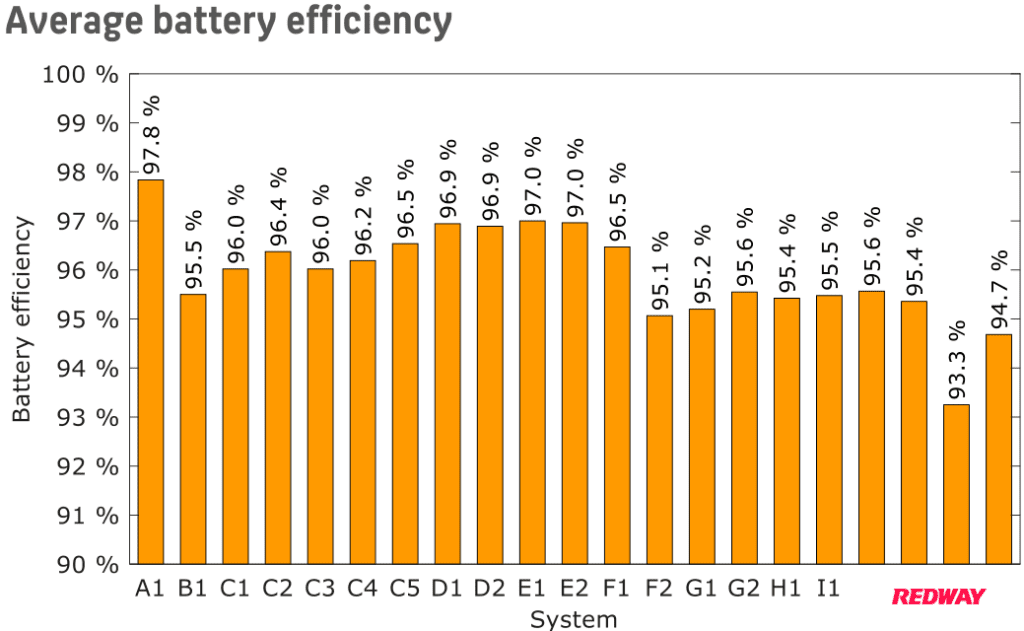

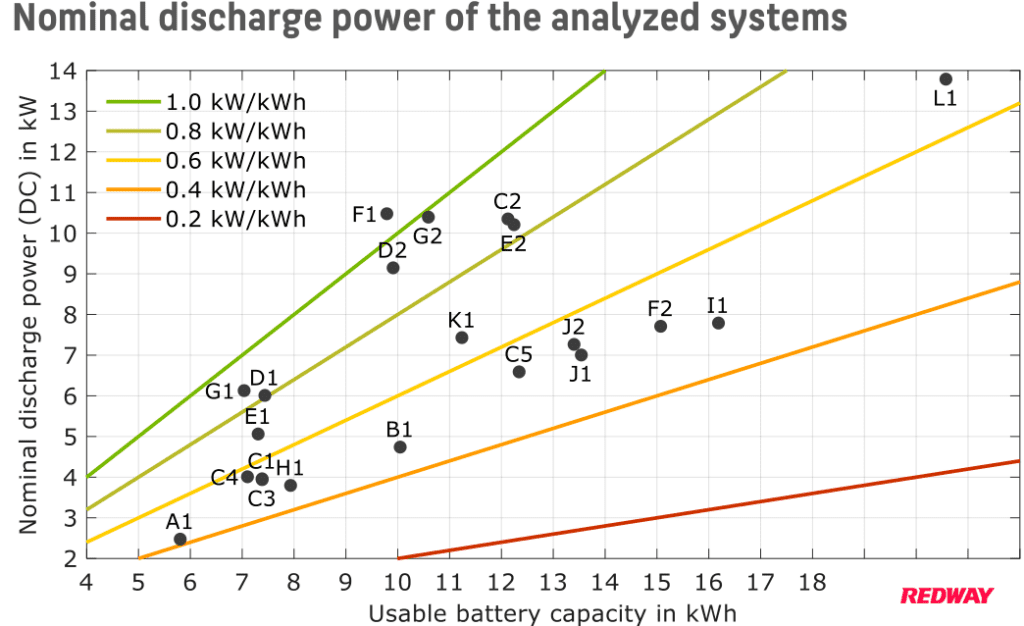
SPI Score
SPI, or System Performance Index, is a comprehensive evaluation of system performance, considering factors such as efficiency, product losses, etc. It is categorized into several levels, typically represented by letters A, B, C, D, E, F, G, each indicating a different level of performance.
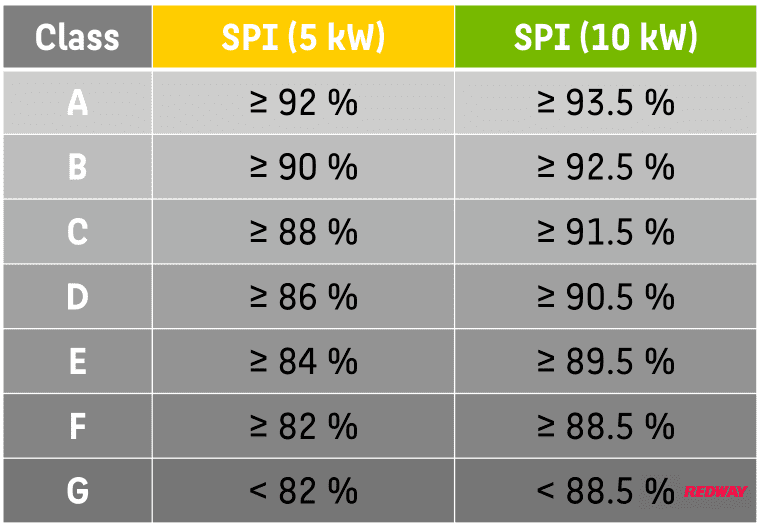
In the 5 kW power range of HOME-ESS products, the combination of the Fronius inverter with BYD battery, coded as D1, holds the top position, achieving an SPI rating of A.
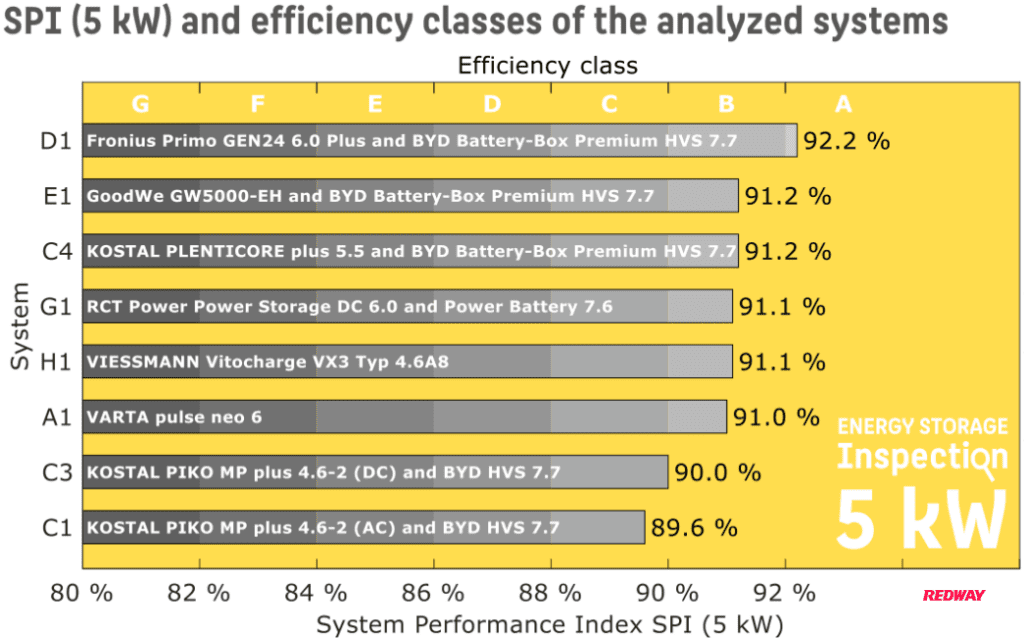
In the 10 kW power range of HOME-ESS products, the RCT DC 10.0 with the code G2 takes the first position, achieving an SPI rating of A.
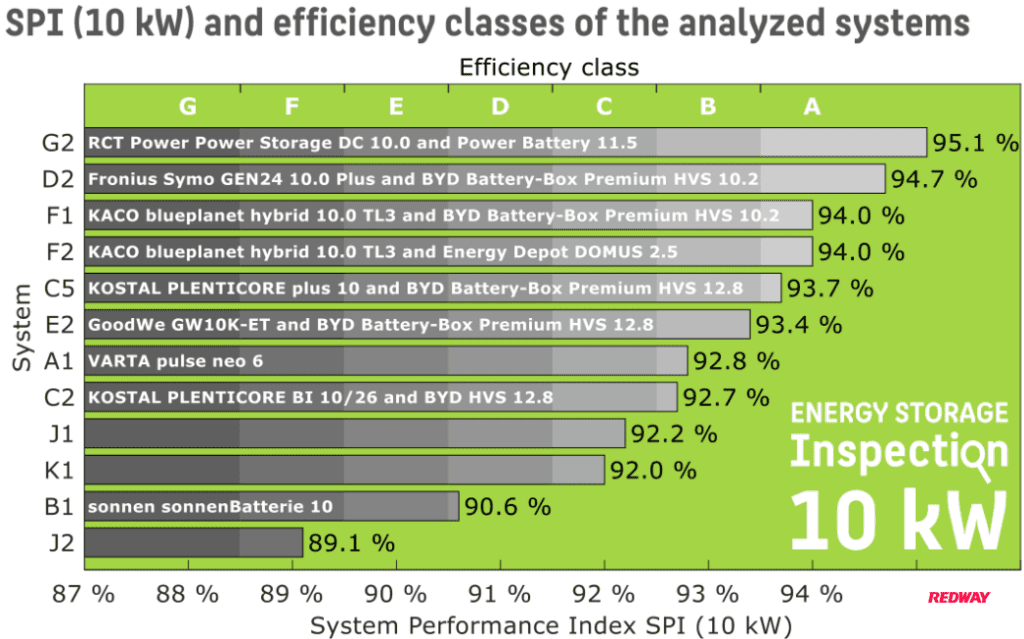
The information provided above is sourced from the evaluation report “Energy Storage Inspection 2022” by the Berlin University of Applied Sciences in Germany.

